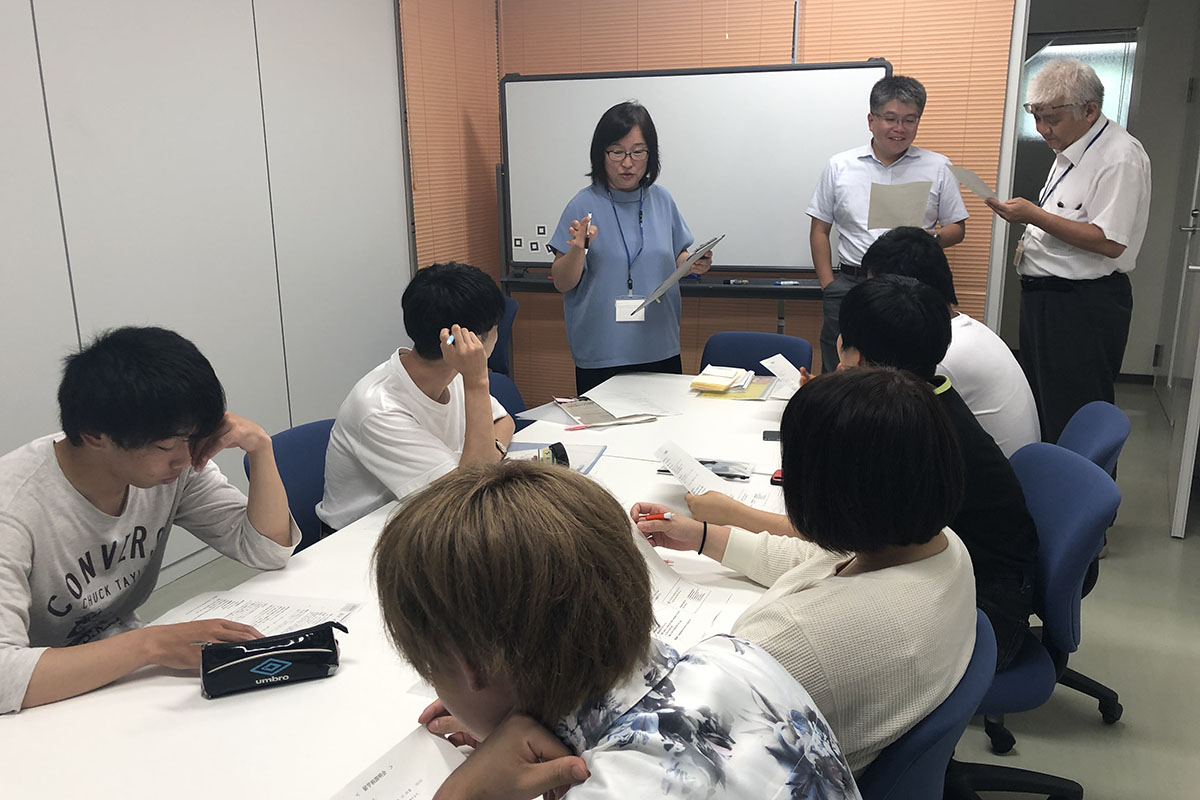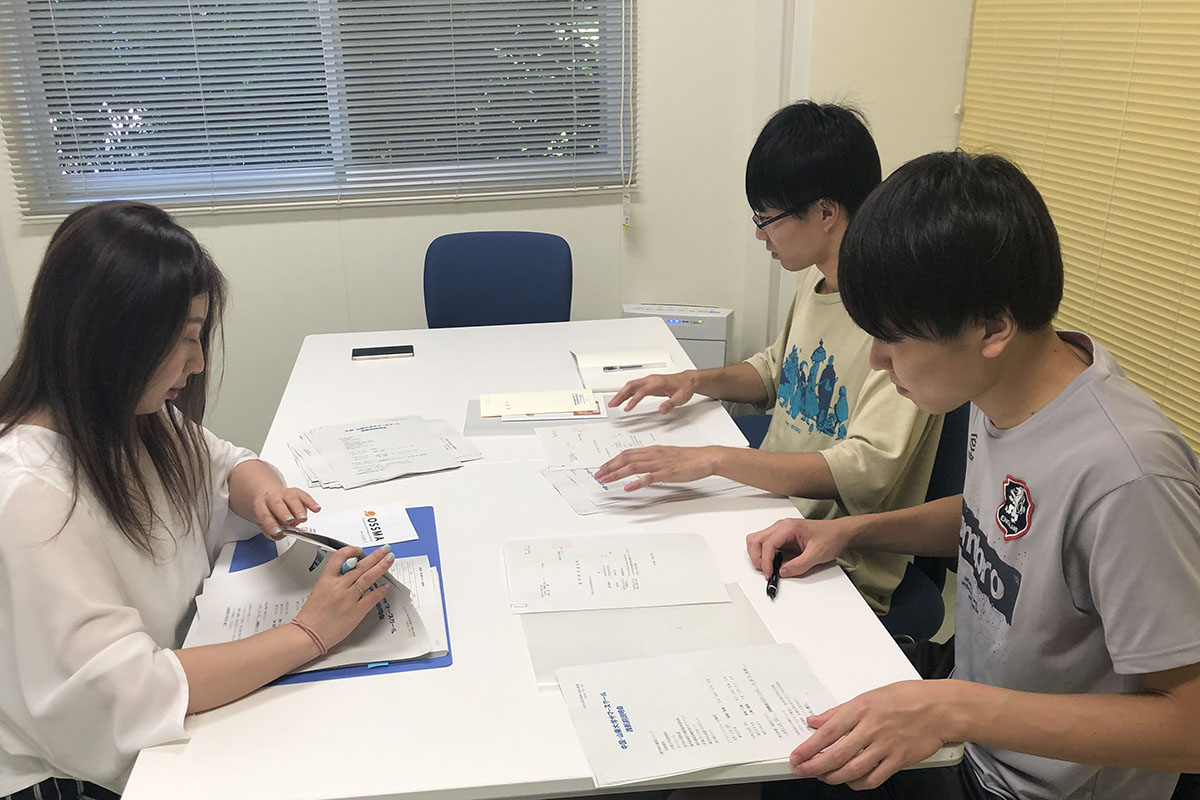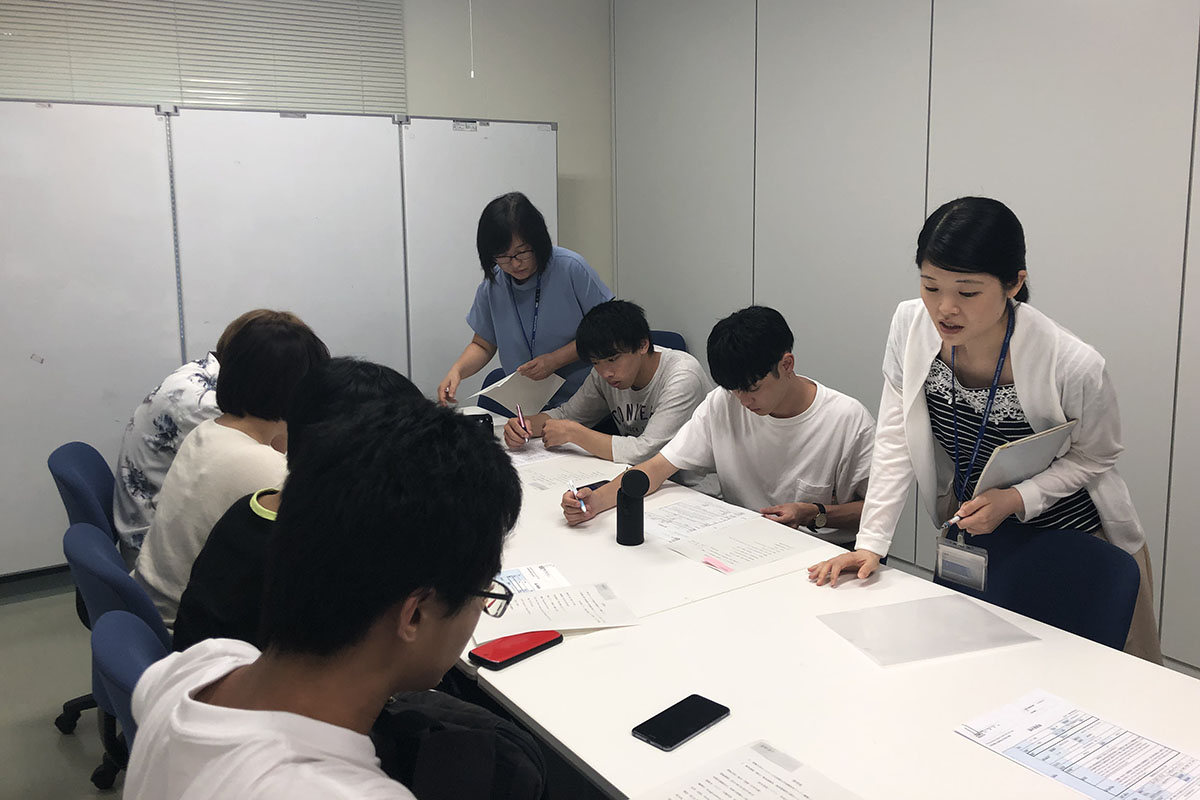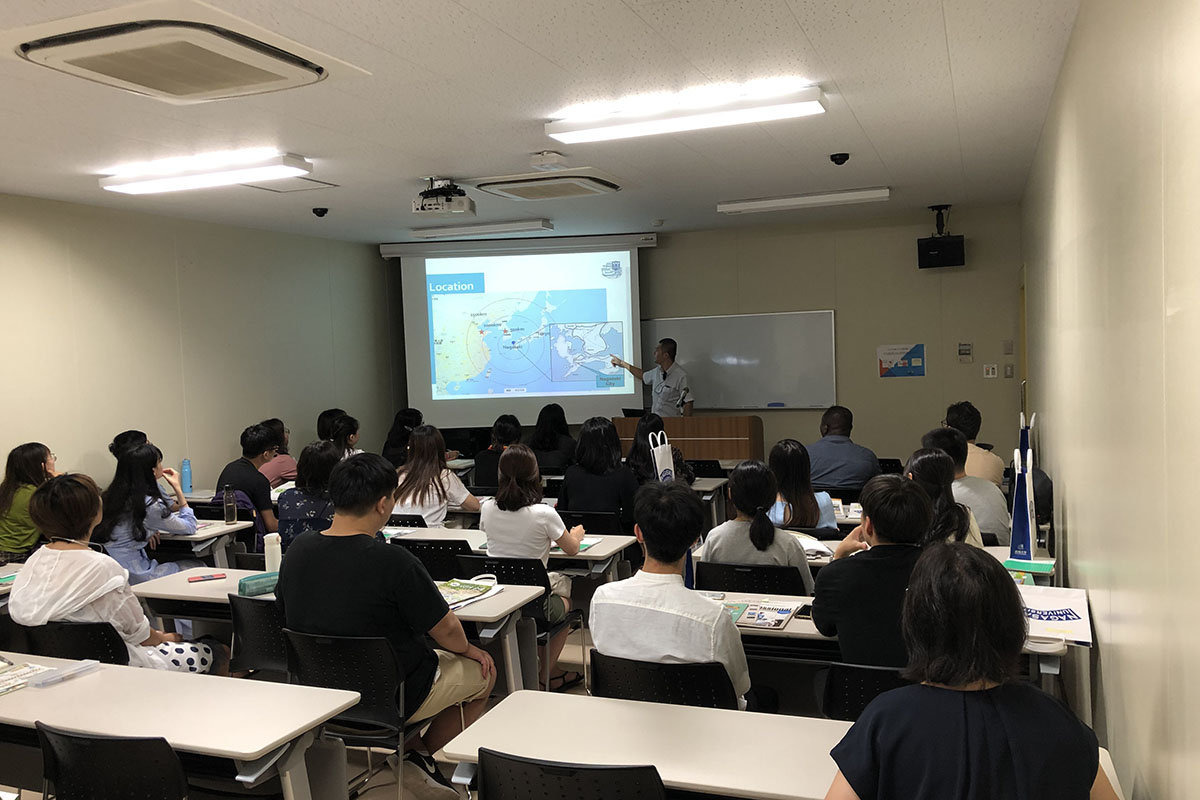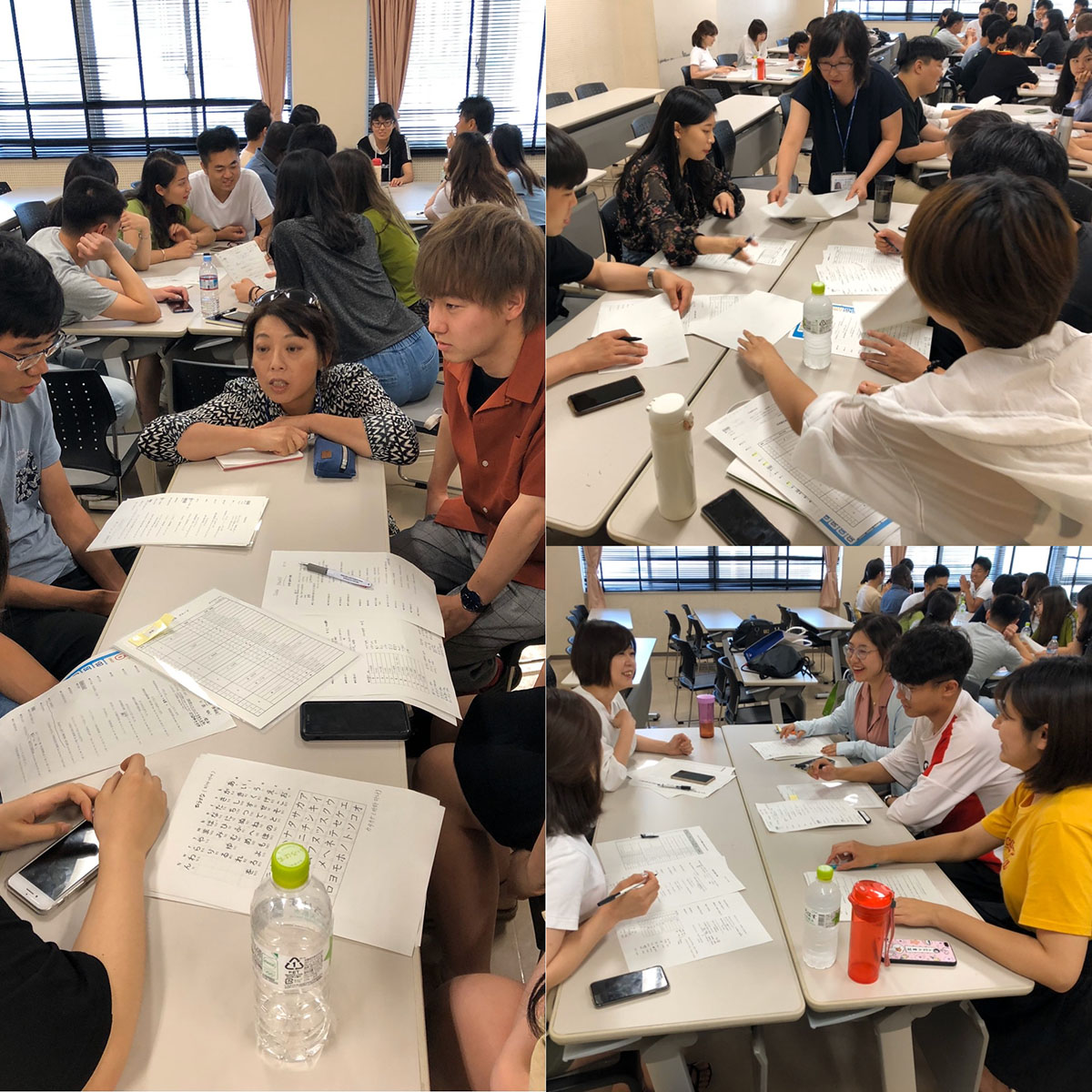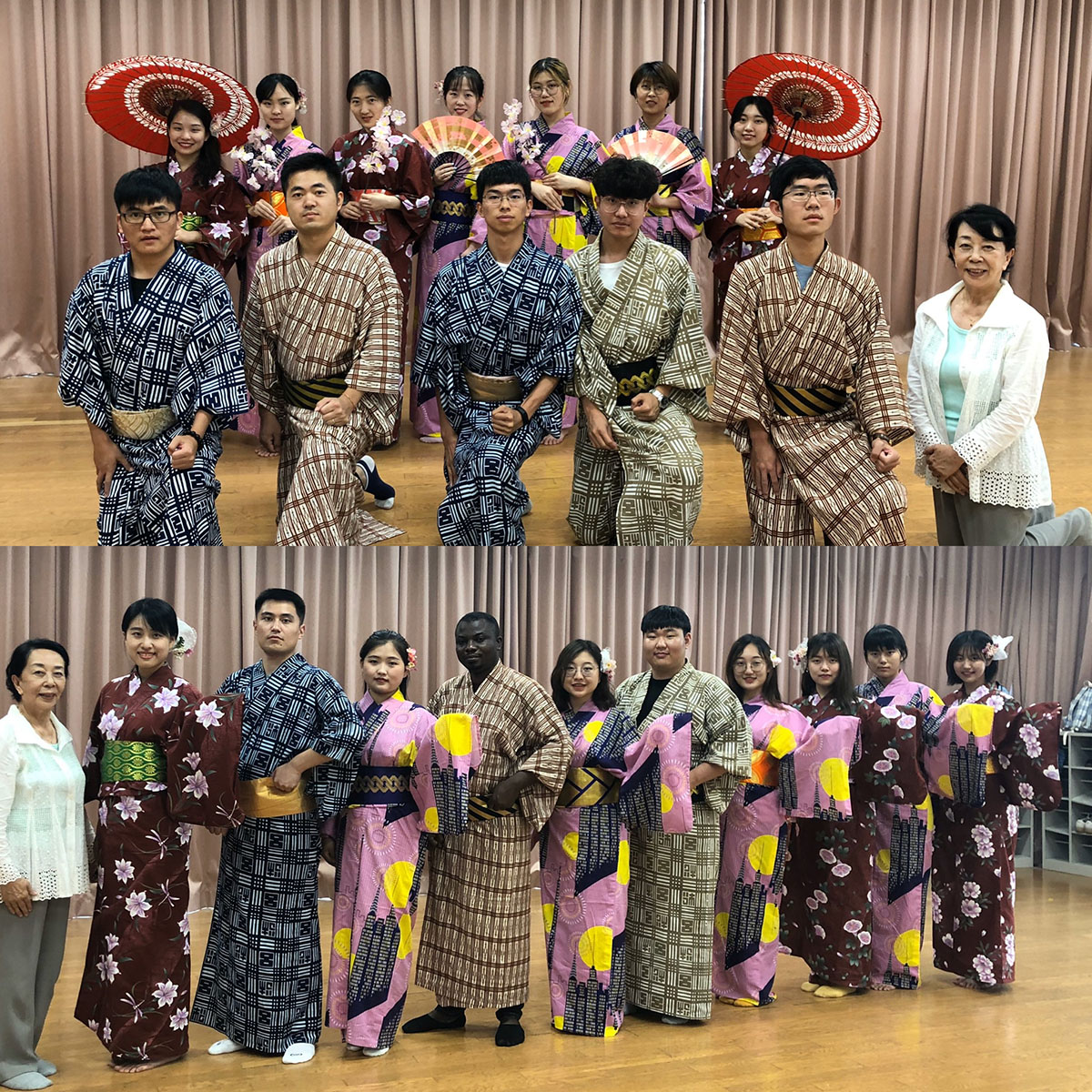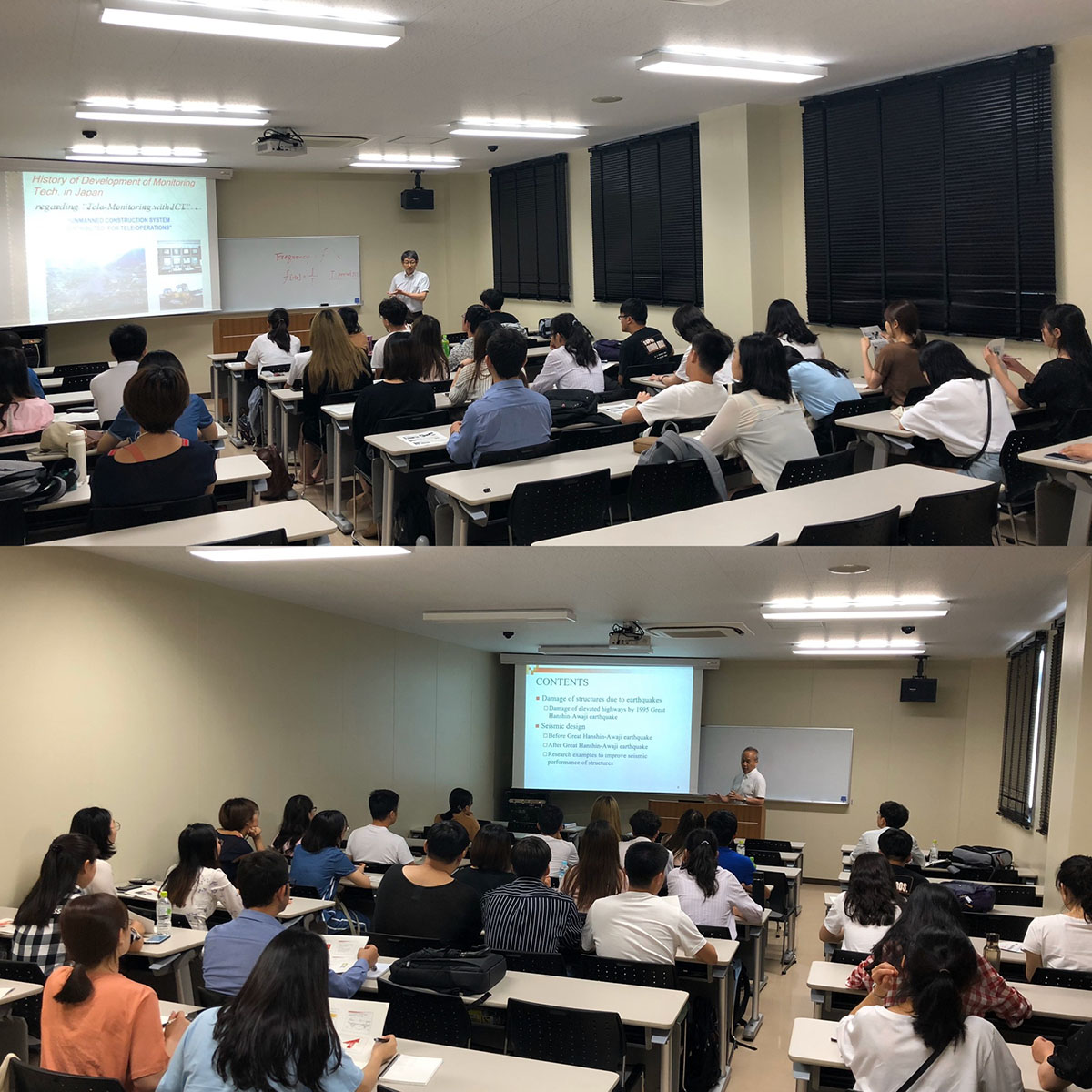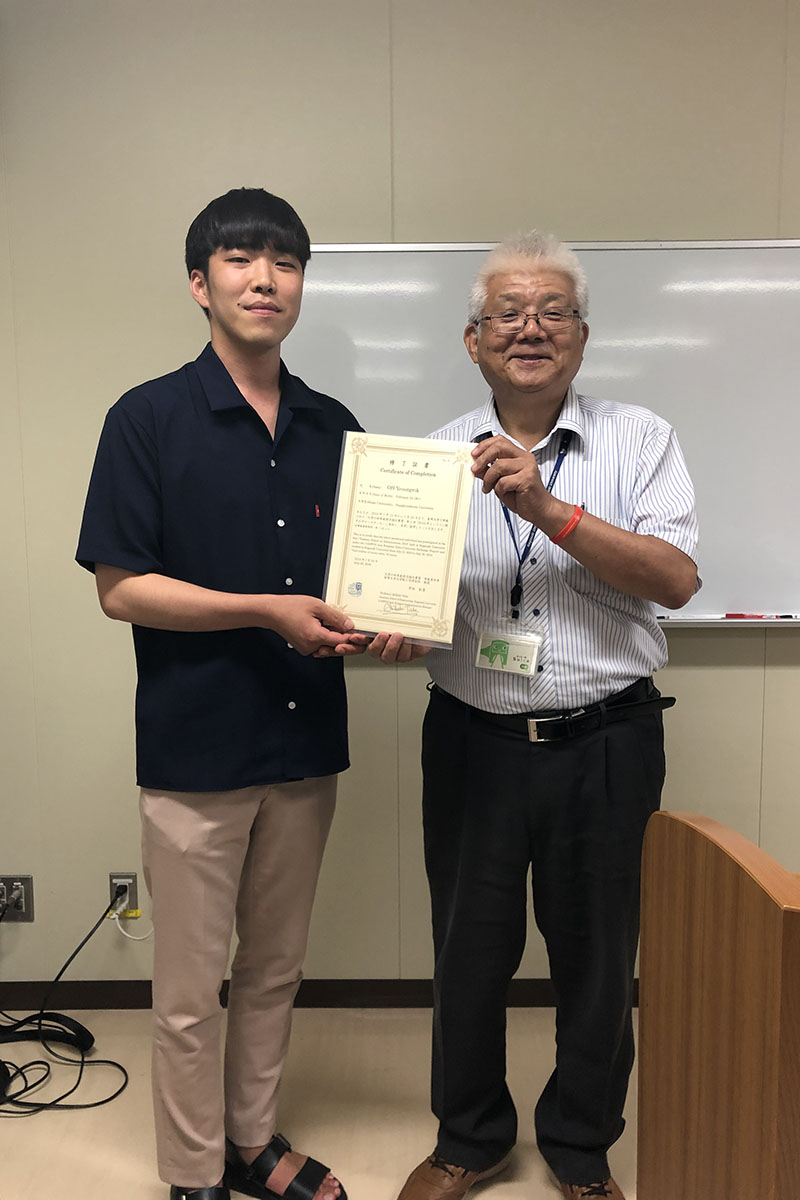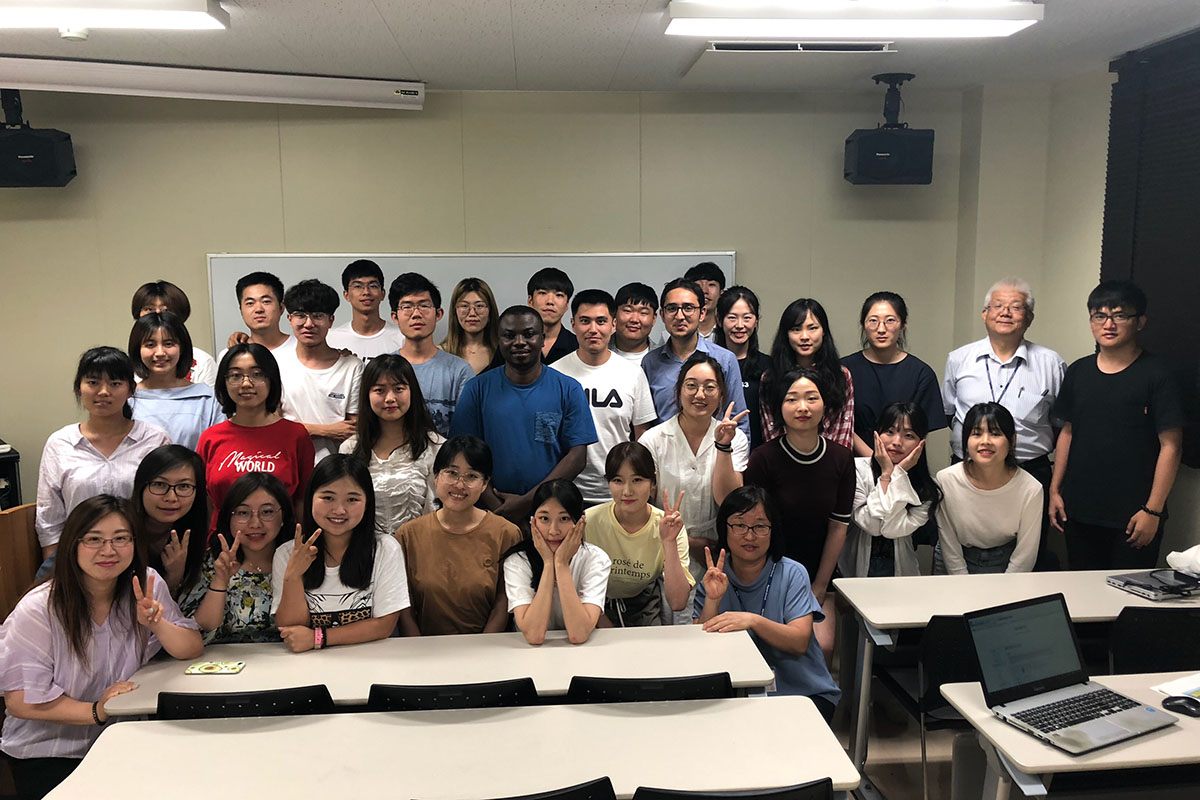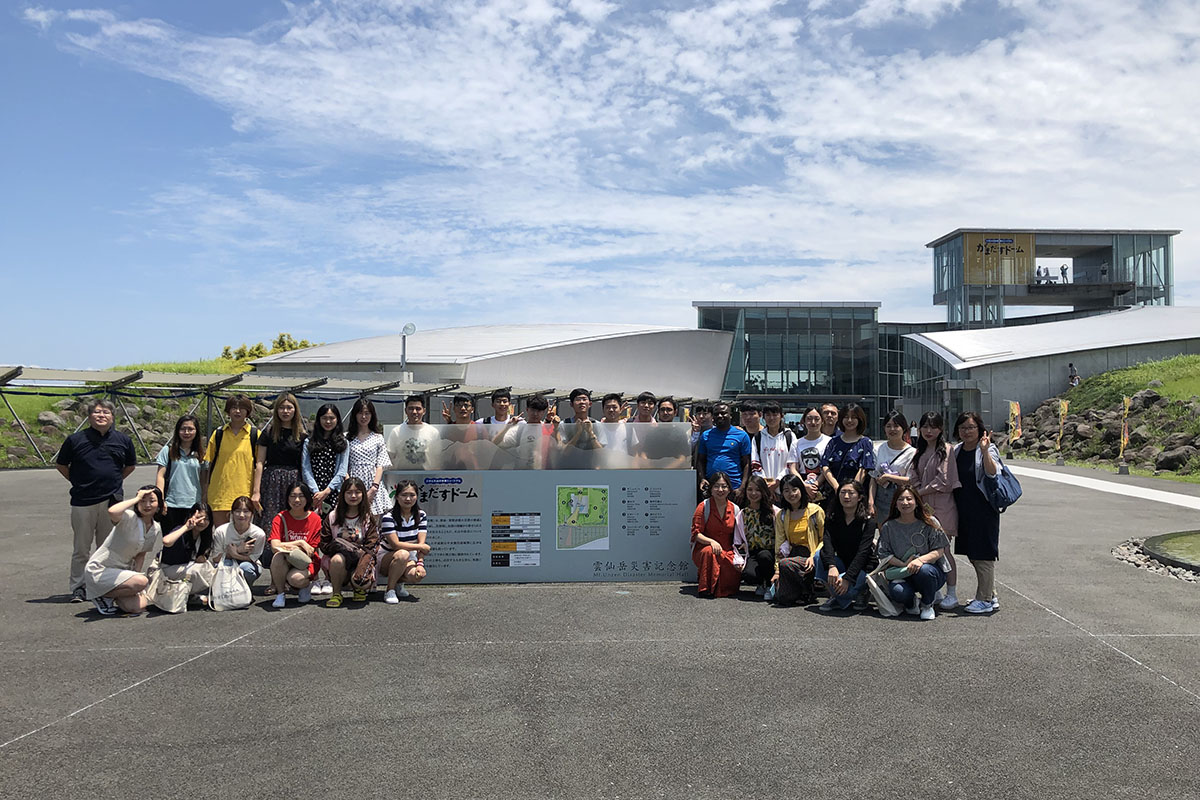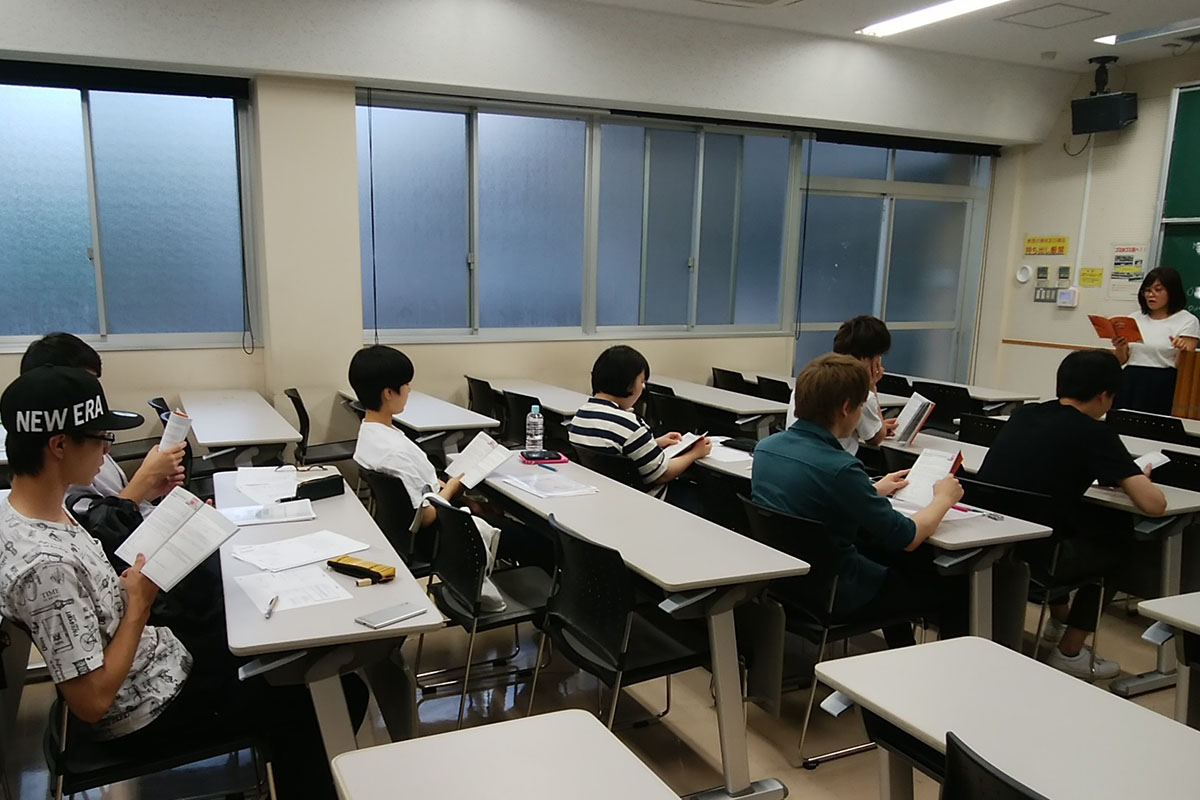Pre-departure orientation was conducted for students participating in the Summer School Program in China and Korea.
On July 31, 2019, a pre-departure orientation was conducted for nine students participating in the Summer School Program at partner universities. This year, two undergraduate students from Nagasaki University will participate in the Summer School in Shandong University, China from August 13 to August 25, 2019. In the meantime, seven undergraduate students will be sent to Sungkyunkwan University, Korea from August 10 to August 21, 2019.
Following the encouraging comment from Professor Akihide Tada, Program Manager of the Graduate School of Engineering, Nagasaki University, international coordinators provided detailed explanation about their stay in China and Korea, including life tips, daily schedule and some items to prepare before departure. To be better prepared for risks of studying abroad, the students were encouraged to read through the “Risk Management Guidebook” provided by Nagasaki University along with an emergency contact list. Further information about credit transfer system was given by an administrative staff at academic department.
Through cooperation and information sharing with host universities, our international coordinators will continue to provide flexible and tailored support to meet the students’ needs and to address their concerns about risk management and studying abroad in general.